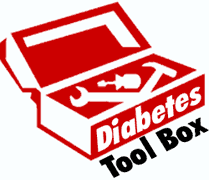 Two more research studies warn against having a cavalier approach to cannabis.
Two more research studies warn against having a cavalier approach to cannabis.
First, researchers at University of Sydney, in Australia, determined the prevalence of recent alcohol, nicotine, or cannabis use in young persons presenting for mental healthcare. Continue reading More dangers of pot smoking reported →
 Researchers at Prince of Wales Hospital, in New South Wales, Australia, reviewed the evidence to determine the extent to which use of cannabis, alcohol, and other psychoactive substances affect the age at onset of psychosis. Continue reading Cannabis use and the risk of psychosis →
Researchers at Prince of Wales Hospital, in New South Wales, Australia, reviewed the evidence to determine the extent to which use of cannabis, alcohol, and other psychoactive substances affect the age at onset of psychosis. Continue reading Cannabis use and the risk of psychosis →
 There are 5 choices that make a difference, according to this report by the Cardiovascular Health Study group. Continue reading Lifestyle choices and diabetes risk later in life →
There are 5 choices that make a difference, according to this report by the Cardiovascular Health Study group. Continue reading Lifestyle choices and diabetes risk later in life →
 Researchers at the University of Colorado at Boulder studied whether religiosity moderated the genetic variance associated with problem alcohol use during adolescence and early adulthood. Continue reading Moderating effect of religiosity on problem alcohol use →
Researchers at the University of Colorado at Boulder studied whether religiosity moderated the genetic variance associated with problem alcohol use during adolescence and early adulthood. Continue reading Moderating effect of religiosity on problem alcohol use →
 Researchers at the Eunice Kennedy Shriver National Institute of Child Health and Human Development, in Bethesda, Maryland examined the association of overweight and obesity with health-risk behaviors among US youth. Continue reading Obesity and health-risk behaviors in children →
Researchers at the Eunice Kennedy Shriver National Institute of Child Health and Human Development, in Bethesda, Maryland examined the association of overweight and obesity with health-risk behaviors among US youth. Continue reading Obesity and health-risk behaviors in children →
 Acupuncture has been used in the treatment of substance-related disorders for the past 30 years.
Acupuncture has been used in the treatment of substance-related disorders for the past 30 years.
Researchers at Kyung Hee University Medical Center, in Seoul, Korea, reviewed the evidence. Continue reading Review of acupuncture to treat alcohol dependence →
 Dr. Darrell Hulisz from Case Western Reserve University School of Medicine in Cleveland, Ohio has written a continuing education article on herbals.
Dr. Darrell Hulisz from Case Western Reserve University School of Medicine in Cleveland, Ohio has written a continuing education article on herbals.
Here are the author’s take-away points, with additional references added. Continue reading Key points about commonly used herbals →
 Researchers from the Harvard School of Public Health, in Boston studied dietary, lifestyle, and metabolic risk factors.
Researchers from the Harvard School of Public Health, in Boston studied dietary, lifestyle, and metabolic risk factors.
Toping the list were smoking and high blood pressure. Continue reading Causes of death in the United States →
 Riboflavin (vitamin B-2) was originally recognized as a growth factor in 1879 and named vitamin B-2 according to the British nomenclature system.
Riboflavin (vitamin B-2) was originally recognized as a growth factor in 1879 and named vitamin B-2 according to the British nomenclature system.
Here’s what we know today. Continue reading Background on vitamin B-2 →
 Â Dr. Harvey Simon, who is editor of the Harvard Men’s Health Watch, cuts through the clutter and provides 10 resolutions for 2009.
 Dr. Harvey Simon, who is editor of the Harvard Men’s Health Watch, cuts through the clutter and provides 10 resolutions for 2009.
Surprise! They’re all complementary. Continue reading Complementary New Year Resolutions →
 It’s known that religiosity and the personal importance of religion are associated with lower levels of alcohol use among both adolescents and college students.
It’s known that religiosity and the personal importance of religion are associated with lower levels of alcohol use among both adolescents and college students.
This study looked at the influence of the religious beliefs of close friends and typical college students on alcohol use. Continue reading Religion and the influence of social contacts on alcohol use →
 A case of pancreatitis in a 55-year-old man with alcoholism who had been sober for more than 15 years was published in the Southern Medical Journal. The authors make a circumstantial case for his ongoing use of saw palmetto and the occurrence of pancreatitis.
A case of pancreatitis in a 55-year-old man with alcoholism who had been sober for more than 15 years was published in the Southern Medical Journal. The authors make a circumstantial case for his ongoing use of saw palmetto and the occurrence of pancreatitis.
Continue reading Saw palmetto-induced pancreatitis? →
 The results of this study have public health implications because the tuberculosis (TB) skin test is central to the problematic area of diagnosing TB infection and disease — especially in children prone to both zinc deficiency and false-negative skin-test results.
The results of this study have public health implications because the tuberculosis (TB) skin test is central to the problematic area of diagnosing TB infection and disease — especially in children prone to both zinc deficiency and false-negative skin-test results.
The zinc-mediated augmentation of TB skin testing may facilitate the diagnosis of adult and pediatric cases of TB in regions where micronutrient deficiency is prevalent. Continue reading Zinc cream to improve reliability of tuberculosis test →
 It’s not just pot, but tobacco and alcohol also appear to influence the symptoms of attention deficit hyperactivity disorder (ADHD). Continue reading The effect of marijuana on ADHD →
It’s not just pot, but tobacco and alcohol also appear to influence the symptoms of attention deficit hyperactivity disorder (ADHD). Continue reading The effect of marijuana on ADHD →
 Studies dating back more than 15 years suggest that people with depression are likely to have low blood levels of folic acid (or folate) and vitamin B12.
Studies dating back more than 15 years suggest that people with depression are likely to have low blood levels of folic acid (or folate) and vitamin B12.
Of course, not all of the researchers have come to the same conclusion. But to start, here’s a summary of the most positive analysis of folic acid and B12.
Continue reading Feeling depressed? Start taking a vitamin →
 In 2003, Professor Edzard Ernst writing on the Cochrane Collaboration website concluded, “Compared with placebo, kava extract is an effective symptomatic treatment for anxiety although, at present, the size of the effect seems small.” Continue reading A critical review of herbals to treat anxiety and depression →
In 2003, Professor Edzard Ernst writing on the Cochrane Collaboration website concluded, “Compared with placebo, kava extract is an effective symptomatic treatment for anxiety although, at present, the size of the effect seems small.” Continue reading A critical review of herbals to treat anxiety and depression →
 Alcoholics who watch themselves after a bout of delirium tremens (DTs; a potentially fatal form of alcohol withdrawal), have less severe relapses and consume less alcohol.
Alcoholics who watch themselves after a bout of delirium tremens (DTs; a potentially fatal form of alcohol withdrawal), have less severe relapses and consume less alcohol.
Here are the details. Continue reading Using videotape to treat alcoholics with delirium tremens →
 Let’s see, since June last year this blog has summarized 8 reports on the effects of coffee and caffeine and health.
Let’s see, since June last year this blog has summarized 8 reports on the effects of coffee and caffeine and health.
What should we make of all this?
Continue reading Coffee: Should you drink it or not? →
Complementary and Alternative Medicine: Fair, Balanced, and to the Point
 Two more research studies warn against having a cavalier approach to cannabis.
Two more research studies warn against having a cavalier approach to cannabis.
 There are 5 choices that make a difference,
There are 5 choices that make a difference, 


 Dr. Darrell Hulisz from Case Western Reserve University School of Medicine in Cleveland, Ohio has
Dr. Darrell Hulisz from Case Western Reserve University School of Medicine in Cleveland, Ohio has  Â Researchers from Ireland try to sort out the
 Researchers from Ireland try to sort out the   Dr. Harvey Simon, who is editor of the Harvard Men’s Health
 Dr. Harvey Simon, who is editor of the Harvard Men’s Health  A
A  It’s not just pot, but tobacco and alcohol also appear to influence the symptoms of attention deficit hyperactivity disorder (ADHD).
It’s not just pot, but tobacco and alcohol also appear to influence the symptoms of attention deficit hyperactivity disorder (ADHD).  Studies dating back more than 15 years suggest that people with depression are likely to have low blood levels of folic acid (or
Studies dating back more than 15 years suggest that people with depression are likely to have low blood levels of folic acid (or  Let’s see, since June last year this blog has summarized 8 reports on the effects of coffee and caffeine and health.
Let’s see, since June last year this blog has summarized 8 reports on the effects of coffee and caffeine and health.